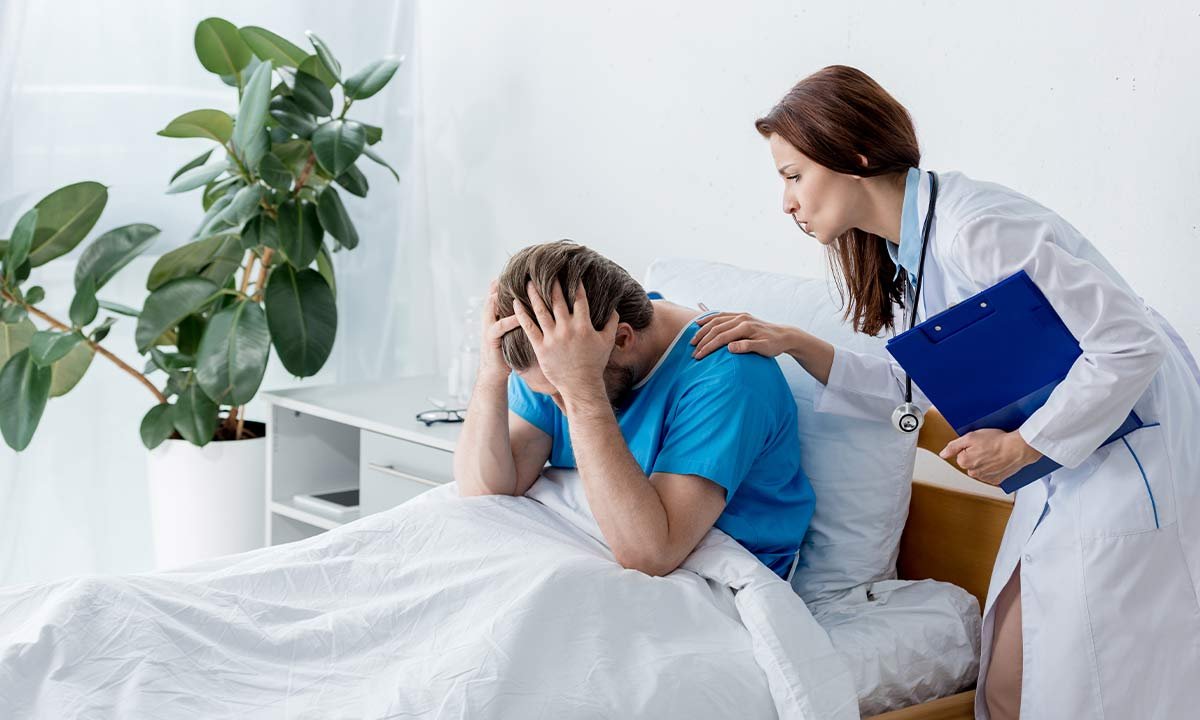
Anxiety affects millions of people worldwide. Whether it's occasional worry or a more persistent anxiety disorder, the good news is that you can take control. If you're wondering how to overcome anxiety, you're not alone and there are proven steps that can make a real difference. This article outlines eight practical, research-based strategies you can start using today.
8 Anxiety Coping Strategies You Should Know
These eight strategies range from immediate techniques you can use when anxiety strikes to longer-term practices that help build your overall resilience. Some work best in the moment of panic, while others are most effective when practiced regularly over time. The key is finding the combination that works best for your lifestyle and specific anxiety triggers.
1. Practice Deep Breathing and Grounding Techniques
One of the most effective ways to calm anxiety quickly is through controlled breathing. When you’re anxious, your breathing often becomes shallow and rapid, which feeds the cycle of stress.
Try this simple breathing exercise:
Inhale for 4 seconds
Hold for 4 seconds
Exhale slowly for 6 seconds
Grounding exercises, like the 5-4-3-2-1 method where you identify five things you can see, four you can touch, three you can hear, two you can smell, and one you can taste help anchor your mind in the present moment and reduce anxiety.touch, 3 you can hear, 2 you can smell, and 1 you can taste help you focus on the present and reduce anxiety symptoms fast.
2. Get Regular Exercise
Regular physical activity is one of the most effective natural remedies for reducing anxiety and improving overall mental well-being. Physical activity helps release endorphins your brain’s natural stress relievers and improves sleep and self-esteem.
Aim for 30 minutes of movement at least five days a week, whether it’s walking, swimming, yoga, or dancing.Even low-impact movement can dramatically improve your emotional well-being.
3. Limit Caffeine and Alcohol
Both caffeine and alcohol can worsen anxiety. Caffeine stimulates your nervous system, which can trigger jitteriness or even panic attacks.Alcohol might seem to calm you at first, but it disrupts sleep and can increase anxiety over time.
Opt for calming herbal teas such as chamomile, lemon balm, or green tea, all of which contain natural compounds known to promote relaxation and ease anxiety
4. Establish a Healthy Sleep Routine
Anxiety and poor sleep go hand in hand. Without proper rest, your brain can't regulate emotions effectively. To improve sleep:
Maintain a consistent sleep schedule by going to bed and waking up at the same time each day
Avoid screens 1–2 hours before bed
Establish a soothing bedtime routine, such as reading a book or taking a warm bath, to help signal your body that it's time to wind down
Quality sleep is one of the easiest yet most overlooked ways to manage anxiety.
5. Try Mindfulness and Meditation
Mindfulness is a core component of many anxiety coping strategies. Regular mindfulness or meditation practice can help you observe your thoughts without judgment and reduce overthinking.
Apps like Calm, Headspace, or Insight Timer can guide you through short, beginner-friendly meditation sessions. Begin with just five minutes a day, and slowly extend the duration as the habit becomes part of your routine
6. Identify Triggers and Create a Coping Plan
Keeping a journal can help you track when and why your anxiety flares up. Common triggers include:
Stress at work or school
Certain social settings
Health-related worries
Negative self-talk
Once you identify patterns, you can develop a personalized anxiety coping plan. This might include preparing ahead for events, using affirmations, or practicing calming techniques before stressful situations.
7. Stay Connected and Talk It Out
Isolation often makes anxiety worse. Talking to a friend, family member, or support group about how you’re feeling can relieve the emotional burden and remind you that you're not alone.If you’re struggling to open up, start by writing down your thoughts and sharing only what you’re comfortable with. Strong social connections play a key role in mental health.
8. Seek Professional Help When Needed
If your anxiety is severe, persistent, or interfering with daily life, don’t hesitate to reach out to a therapist or mental health professional. Therapies like Cognitive Behavioral Therapy (CBT) are highly effective in helping people learn how to overcome anxiety through structured sessions and guided strategies. Medication may be recommended in some cases, but it's often used in combination with therapy and lifestyle changes.
Final Thoughts
Although anxiety is a common part of life, it doesn’t have to take control of yours. By applying these 8 actionable strategies, you’ll be well on your way to a calmer, more centered version of yourself. Remember, small daily changes lead to big mental health improvements over time. Take your first step today because learning how to calm anxiety is not just possible, it’s empowering.


